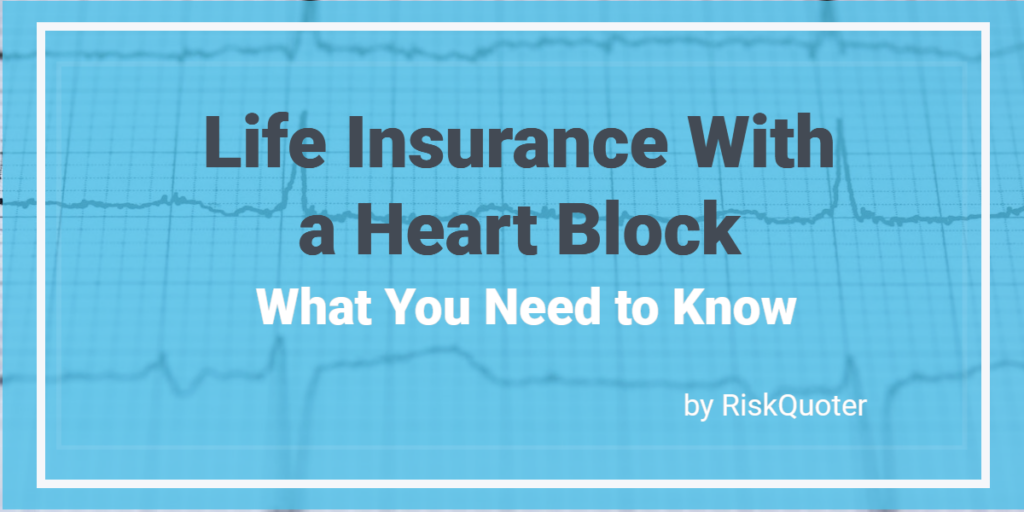If you’ve been diagnosed with a heart block, especially a bundle branch block, you might wonder if life insurance is still within reach.
The good news is—absolutely! Many people with heart conditions, such as a heart block, receive affordable life insurance rates. Understanding your condition and how life insurance companies underwrite health issues is your first step toward confidently protecting your family.
What Is a Heart Block?
A heart block occurs when the heart’s electrical signals slow down or get blocked entirely, affecting how your heart beats. There are two main types:
- Bundle Branch Blocks (BBB): When signals inside the lower chambers are slowed or blocked.
- Atrioventricular (AV) Blocks: When signals between the upper and lower chambers of the heart (atria and ventricles) are delayed or blocked.
What is a Bundle Branch Block (BBB)?
Your heart beats thanks to electrical signals that travel smoothly through specialized fibers in your heart, making it contract and pump blood.
A bundle branch block happens when these signals slow down or get blocked inside the lower chambers (ventricles), causing the right and left ventricles not to contract simultaneously. This irregular pattern is detected on an electrocardiogram (ECG).
Types of Bundle Branch Blocks
Understanding the type you have helps in getting accurate life insurance quotes:
- Right Bundle Branch Block (RBBB):
- Often harmless and commonly found without underlying heart disease.
- Usually not an underwriting concern when occurring by itself.
- Left Bundle Branch Block (LBBB):
- More serious and often associated with conditions like coronary artery disease, high blood pressure, or cardiomyopathy.
- Bifascicular Block (a type of combined BBB):
- Involves blockage of multiple branches.
- It can be more significant and usually requires further evaluation.
- Incomplete Right Bundle Branch Block (IRBBB) and Left Anterior or Posterior Hemiblock (LAHB or LPHB):
- Typically, mild conditions receive favorable underwriting decisions.
Can You Qualify for Life Insurance with a Bundle Branch Block?
Yes, and often at favorable rates, depending on your medical history. Here’s how the best life insurers typically view BBB:
- Mild BBB Types (Isolated RBBB, IRBBB, LAHB/LPHB):
- Usually no impact on your insurance rates if you have no other health issues.
- Moderate or Severe BBB Types (LBBB or Bifascicular Blocks):
- Age matters: if diagnosed under age 40, premiums are higher.
- Stability matters: if stable for 3 years without changes or additional heart problems, rates often improve. After 6 years of stability, rates might even return to standard (non-rated).
What is an Atrioventricular (AV) Block?
An atrioventricular (AV) block is a type of heart rhythm condition where the electrical signals traveling from the heart’s upper chambers (atria) to the lower chambers (ventricles) become slowed or disrupted. This interruption can cause the heart to beat irregularly or more slowly.
Types of AV Heart Blocks
AV blocks are measured by how delayed your heart’s electrical signals are (known as the P-R interval on an EKG):
- First Degree AV Block: A mild delay. Often harmless and sometimes seen in healthy, athletic individuals.
- Second Degree AV Block:
- Mobitz Type I (Wenckebach): Gradually increasing delays. Usually mild.
- Mobitz Type II: More serious, involves occasional skipped heartbeats. May need treatment.
- Third Degree (Complete Heart Block): Serious condition where signals don’t pass at all, requiring treatment, usually a pacemaker.
Can You Get Life Insurance with an AV Heart Block?
Yes, but your rates and approval depend on:
- Type and severity of the block
- Whether you’ve experienced symptoms (like dizziness, fainting, or shortness of breath)
- Presence of related heart conditions (coronary artery disease, cardiomyopathy, mitral valve)
- Treatments you’ve received (e.g., pacemaker, medications)
- Stability of your condition over time
All types of life insurance are available, including term life, universal, and whole life insurance.
Common Causes of Heart Blocks
Heart blocks, whether bundle branch or AV blocks, can appear for many reasons, including:
- Coronary artery disease (the most common cause)
- Damage from a heart attack
- Cardiomyopathy (heart muscle disease)
- High blood pressure (hypertension)
- Fibrosis (scarring of the heart’s electrical fibers)
- Congenital (present at birth) heart defects
- Aortic valve stenosis (narrowing of the heart valve)
- Trauma or tumors affecting the heart
- Sometimes, a BBB can occur in a heart without any obvious problems.
- Thyroid Disease
- Autoimmune Disorders
We’ll need to know if you’ve had any of the above so we can factor it into underwriting.
How Do Life Insurance Companies Assess Risk?
Insurance companies use guidelines based on medical data to evaluate your health risk:
- Mild conditions, like first-degree AV blocks or isolated RBBB without symptoms, often qualify for excellent rates or standard premiums.
- Moderate conditions or resolved issues after treatment might get standard rates or slightly higher premiums.
- Severe or unresolved conditions, like untreated third-degree AV blocks or symptomatic Mobitz Type II, may require specialized policies or higher premiums.
Frequently Asked Questions
Not necessarily. Mild forms often don’t affect rates at all. Your premiums depend heavily on your individual health, symptoms, and treatments.
Absolutely! Many insurers provide favorable rates if your condition is managed well with a pacemaker and you have regular medical follow-ups.
Most mild heart blocks have minimal impact on life expectancy. Even more serious blocks, if treated effectively, may not drastically shorten lifespan.
Absolutely. Insurers view normal stress test results positively, often resulting in better premiums.
Final Thoughts
A heart block doesn’t mean you can’t protect your loved ones. Knowing how life insurance companies view your condition empowers you to get the best coverage possible.
With the right information, you’ll find a policy that gives you peace of mind and security for the future.
